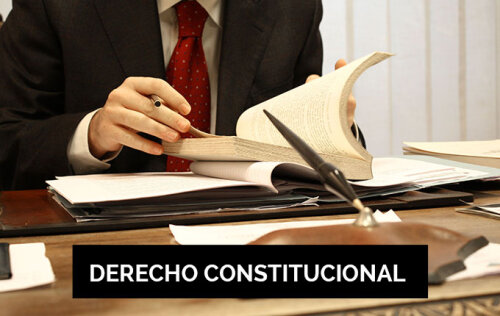Best Divorce & Separation Lawyers in Pereira
Share your needs with us, get contacted by law firms.
Free. Takes 2 min.
Free Guide to Hiring a Family Lawyer
List of the best lawyers in Pereira, Colombia
About Divorce & Separation Law in Pereira, Colombia
Divorce and separation law in Pereira, Colombia is governed by Colombia’s national civil code, which sets the guidelines for marital dissolution and legal separation across the country. Pereira, as a city within the Risaralda Department, adheres to these national statutes, but local courts and public notaries have the jurisdiction to process divorce filings. There are two main types of divorce in Colombia: mutual consent and contentious (when one spouse does not agree). Both aim to address property division, child custody, support obligations, and the formal end to the marital relationship.
Why You May Need a Lawyer
Divorce and separation are deeply personal matters, often involving complex legal and emotional issues. Hiring a lawyer is beneficial in several situations:
- If you and your spouse disagree on child custody, visitation, or support.
- When there are disputes about the division of property or debts acquired during marriage.
- If your spouse is not cooperating or is hiding assets.
- In cases of domestic violence or abusive relationships where protections are needed.
- When one or both spouses are foreign nationals, which may involve navigating additional legalities.
- If you need guidance on your rights and obligations under Colombian law.
- To ensure the process is completed correctly and efficiently with respect to legal documentation and court or notary procedures.
Local Laws Overview
Divorce and separation in Pereira are subject to the following key legal aspects:
- Grounds for Divorce: Colombia allows divorce on multiple grounds, including mutual agreement or severe breach of marital duties.
- Methods of Divorce: Divorce can be processed before a family court (contentious divorce) or a public notary (divorce by mutual agreement with no minor children involved).
- Community Property: Assets and debts acquired during marriage are typically divided equally, unless otherwise agreed upon before or during marriage (prenuptial agreements).
- Parental Rights: Child custody, known as patria potestad, is decided in the best interest of the child. Shared custody is common but not automatic.
- Child Support: Both parents have financial obligations towards their children after separation or divorce, as established by Colombian law.
- Alimony: Spousal support may be granted in cases of economic imbalance after divorce, but is not automatic and is determined on a case-by-case basis.
- Documentation: Divorce requires official documents such as marriage certificates, identification, and in some cases, proof of separation or evidence supporting divorce grounds.
- Foreign Nationals: Non-Colombians married in Colombia or holding assets in Colombia must adhere to local laws, and may need consular assistance or recognition of the divorce in their home country.
Frequently Asked Questions
Can I get a divorce in Pereira even if I was married in another city?
Yes, you can file for divorce in Pereira if you or your spouse live there, regardless of where the marriage took place in Colombia.
What if my spouse does not agree to the divorce?
If your spouse does not consent, you can file a contentious divorce before the family courts by presenting the legally recognized grounds for divorce.
Do I need to appear in person to get divorced?
Generally, both parties must appear in person either before a notary (in mutual consent cases) or in court. In some situations, a legal representative can act on your behalf.
How are assets divided in a divorce in Pereira?
Assets and debts acquired during the marriage are typically divided equally, unless there is a legal agreement stating otherwise.
What happens to our children if we get divorced?
Child custody and support are determined based on the best interests of the child. Either parent can seek custody, and both remain responsible for financial support.
Can I get divorced if my spouse is living abroad?
Yes. You can initiate the divorce process as long as proper notification is provided. International legal assistance may be required for service of process.
Is it possible to remarry after divorce in Colombia?
Yes, once the divorce is finalized and registered, you are free to remarry under Colombian law.
How long does the divorce process take?
A mutual consent divorce via a notary can take a few weeks. A contentious divorce in court may take several months or more, depending on complexity.
How do I prove my divorce is legal for use in another country?
You will need an official divorce decree with an apostille or legalization if requested by foreign authorities. Your lawyer or notary can guide you through this process.
Can I stay in the marital home during the process?
Yes, unless ordered otherwise by a court, you may remain in the marital home. If there are safety concerns, you should inform your attorney and seek protection measures.
Additional Resources
- Family Courts of Pereira – These courts oversee contentious divorces and child custody cases.
- Public Notaries in Pereira – Notaries process mutual consent divorces and register final decisions.
- Defensoría del Pueblo – The Ombudsman’s Office offers free legal advice and assistance in family law cases.
- Instituto Colombiano de Bienestar Familiar (ICBF) – Handles child protection, child custody, and family welfare matters.
- Local Bar Associations – Connect you with certified lawyers experienced in family and divorce law.
- Women’s Rights Organizations – Such as Casa de la Mujer, which can provide support and protection advice in sensitive situations.
Next Steps
If you are considering divorce or separation in Pereira, Colombia, consider the following steps:
- Gather necessary documents – Collect marriage certificates, identification, and any evidence related to your marriage, property, and children.
- Consult with a qualified family lawyer – Legal advice is crucial, particularly if children, property, or international matters are involved.
- Discuss options with your spouse if possible – An amicable agreement may save time and costs.
- Choose the appropriate process – Your lawyer will determine whether a notarial or court-based divorce is best for your case.
- Prepare for legal proceedings – Attend any required appointments with notaries or family court sessions as directed by your lawyer.
- Follow up on registration – Ensure the final divorce is registered with the notary and, if needed, legalized for use abroad.
Seeking professional legal advice can help protect your interests and those of your family during this significant transition.
Lawzana helps you find the best lawyers and law firms in Pereira through a curated and pre-screened list of qualified legal professionals. Our platform offers rankings and detailed profiles of attorneys and law firms, allowing you to compare based on practice areas, including Divorce & Separation, experience, and client feedback.
Each profile includes a description of the firm's areas of practice, client reviews, team members and partners, year of establishment, spoken languages, office locations, contact information, social media presence, and any published articles or resources. Most firms on our platform speak English and are experienced in both local and international legal matters.
Get a quote from top-rated law firms in Pereira, Colombia — quickly, securely, and without unnecessary hassle.
Disclaimer:
The information provided on this page is for general informational purposes only and does not constitute legal advice. While we strive to ensure the accuracy and relevance of the content, legal information may change over time, and interpretations of the law can vary. You should always consult with a qualified legal professional for advice specific to your situation.
We disclaim all liability for actions taken or not taken based on the content of this page. If you believe any information is incorrect or outdated, please contact us, and we will review and update it where appropriate.













